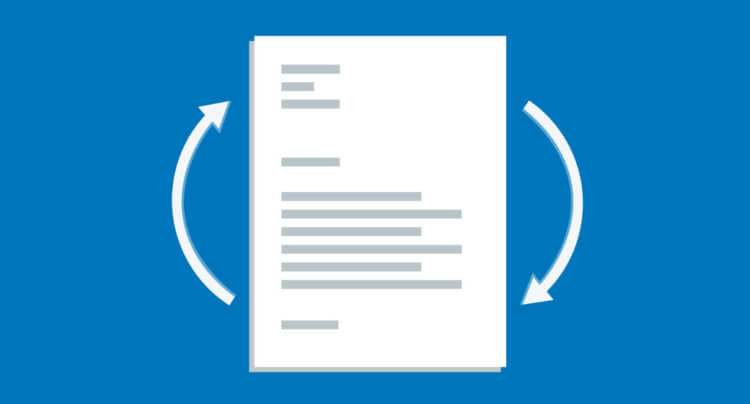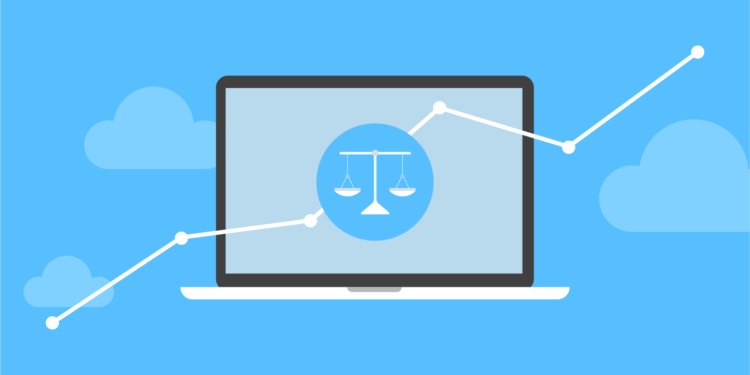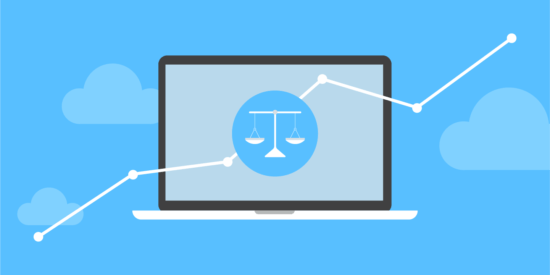What will it take to be a successful lawyer in 2023?
With technology developing at an ever-increasing rate and AI working its way into every industry, it’s never been more important to focus on law firm innovation and technology trends.
To find the most useful legaltech trends that lawyers need to know, we reached out to top industry technologists, lawyers, legal professionals, and consultants. We asked them this question: “What will be the most important legal technology trend for lawyers and legal professionals to follow in 2023?” Read their answers below to set your law firm up for success in 2023 and beyond.
1. A rapid adoption of everything digital

“We are seeing an acceleration of consumer behavior to digital. Businesses that are best suited to thrive in this new reality are those who are embracing digital and meeting clients where they are searching.
This would mean ensuring that you are discoverable and reachable on the tools in which potential clients are using for their research. Therefore, making sure that your information is up to date and accurate is vital.”
Ben Patterson, Strategic Partnerships at Google
2. Even more focus on the client experience
“Any technology that makes the client experience more convenient, seamless, and transparent will increase both the quantity and quality of cases for law firms. Against the backdrop of consumers choosing convenient experiences through companies like DoorDash, Uber, Shopify, and Podium, the question is, will law firms evolve or fall behind?”
Joseph Jenkins, Head of Legal Growth, Podium
You may like these posts
3. A higher bar for how we communicate
“I think it’s pretty clear that the status quo for how we meet and communicate has changed permanently. If lawyers haven’t already pivoted to find new ways to engage with current and prospective clients, they need to do that. Focus on new, seamless communication and collaboration channels for every part of the client engagement—from sales through to invoicing.”
Nicole Bradick, Founder and CEO, Theory and Principle
4. The automation of basic administrative work

“Legal professionals should be following the technology that transforms how basic administrative work can be automated. While less sexy than things like AI and blockchain, the legal industry remains bogged down by work performed by people that is better handled by good technology. Any technology that changes the one-to-one model of lawyers to allow lawyers to serve a much larger market will be a game changer.”
Lori Gonzalez, CEO of RayNa Corp, @RaynaCorp
5. Increased interest in digital interfaces from courts and government agencies
“For lawyers that regularly work in contact with courts and other government agencies, keep an eye on the providers of digital interfaces, both with legal professionals and the public. Right now there’s a pretty small pool of vendors doing it and COVID-19 has pushed many courts into online worlds that they didn’t think they would ever be forced to do and stress-tested many systems (e.g. online unemployment applications). We could really use more competition in the space, greater adoption of open source technology, and more knowledge around purchasing decisions (such as data ownership) by governments.”
Sarah Glassmeyer, Legal Innovation Enthusiast, @sglassmeyer
6. A more deliberate, thoughtful approach to remote work
“It will be important for legal professionals to embrace how technology can make the new distributed workforce model work more seamlessly. Many firms took a ‘just make it happen’ approach to collaboration, mobility, virtual meetings, and working remotely. The opportunity now is to revisit the tools firms are using, and the training the legal professionals need to be able to leverage the technology, making the experience as good as—or better—than it was when everyone was in the office. The ROI for doing this right will be high, and will benefit the firm for years to come.”
Debbie Foster, Partner, Affinity Consulting, @debbiefoster
7. The prioritization of empathy in tech
“Consumers are more wary and anxious than ever; they want quick responses to their concerns but in a compassionate and empathetic way. To stay competitive these days, attorneys must always be ‘on’—available to answer questions, ease client’s anxieties, capture new leads—all while trying to manage their own lives.
We’ve already seen an increase in firms investing in solutions that provide that human touch, and I think we’ll see that expand in [the next year]. Attorneys can’t work 24/7, but websites and phone numbers do, so identifying a partner that can be there for your clients when you can’t, providing that empathetic voice, is going to be a critical factor in determining who survives and thrives in the coming years.”
Kate Winker, CEO at Ruby, @callruby
8. Further improvements to document automation

“The most important trend will be document automation. Lawyers are already moving beyond wet-ink signatures; now they need to move beyond wet-ink document preparation.”
Ed Walters, CEO, Fastcase, @EJWalters
9. Continued industry-wide technology adoption
When the world (and particularly courts) is reopened the tide will swing against video conferences and remote hearings, depositions, mediations, etc. This will only be temporary. By the end of [the year], we will begin seeing the positive impacts of the [recent] tidal wave of technology adoption in how court procedures and other legal events take place. The lessons learned this year will open the door for distributed, asynchronous legal proceedings and if done right, the positive impact on access to justice will be greater than anything we have seen before. Many legal consumers who had been barred from justice due to financial, physical, intellectual, or even emotional barriers need not be barred in the future.
Jordan Couch, Partner at Palace Law, @jordanlcouch
10. Using tech to deliver easier experiences
There’s no doubt that technology will grow in importance, but technology alone won’t save the practice of law. The biggest gains will be made by lawyers who integrate technology with human service to deliver the easiest experience for their clients.
John Strohmeyer, Proprietor of Strohmeyer Law PLLC, @JohnTheLawyer
11. Increased comfort with non-legal-specific technology
I think the biggest legal technology trend should be for lawyers to become comfortable with … non-legal technology. It’s just technology. Just because it wasn’t specifically made for a lawyer, does not mean that we can’t use it.
Shreya B. Ley, La Presidente of LayRoots, @layyourroots
12. Modernized communication methods

“More firms will be looking to modernize their office phone systems so their distributed workforces can continue to communicate with each other, and with clients and callers, from anywhere. They’ll look for and to cloud-based systems with softphones, sophisticated features, and direct integration into their practice management systems. Alongside this trend, they will really dig into being able to text with clients via a platform that allows anyone in the firm to participate and also integrates with their PMS. Finally—and hopefully more than anything—more firms will start to recognize the benefits (and ease!) of portals and encourage their every day, every communication use.”
Adriana Linares, Legal Technology Consultant & Trainer, @AdrianaL
13. Increased focus on data for performance tracking and profitability
“As [the year] winds down, an area we have gotten a growing number of requests for and which I think will carry over into [the new year] relates to capturing data and building reports that identify what work is getting done, by whom, and how efficiently to answer questions like: “How profitable is this practice area or attorney/ paralegal?” In [the past year], law firms realized they can get work done with less. [Next year], they will now want to see how this transfers into more profit. The technology behind not only capturing the data but building meaningful and easy-to-understand reports to help measure these areas will help drive decision making to lead to a more profitable business.”
Peggy Gruenke, Founder, CPN-Legal, Helping Lawyers Manage Their Finances, @PeggyGruenke
14. A focus on business model innovation
“I tend to think in hopes rather than predictions, so let me tell you what I hope happens: I hope we focus on business model innovation.
This sounds like a cop out. It’s not about A.I. or blockchain or sexy robots doing our laundry. Business model innovation has none of the shiny gloss of those subjects. But without the skills to generate new models, none of those other advances will be useful.
Nearly all the momentum created by the “overnight successes” of the last decade came from rethinking the customer value chain. They didn’t focus on buttons and lights, but rethought how they get people what they want, when they want it, with a great experience. The legal space is in desperate need of that kind of imagination.
This year, start small. Test an idea. Use the brainstorming and model-testing methods that I wrote about in Designing Your Law Firm’s New Normal. You may just create the habits the industry needs to deliver better on its promises.
As regulations change and markets are opened, no effort will impact the industry as much as rethinking the connection between what you offer and what some specific customer needs. My hope this year is that we’ll all be crazy enough to engage in that rethink.”
Mike Whelan, author of Lawyer Forward: Finding Your Place in the Future of Law, @mikewhelanjr
15. Lawyers taking a more active role in cybersecurity
“The most important tech trend for lawyers and legal professionals to follow will be cybersecurity. As more of our work transitions to an online or virtual format, we will have to take a more active role in the security of our firms and our client’s confidential information.”
Alycia Kinchloe, Esq., Owner of Kinchloe Law, @aakesq
16. Videoconferencing to better serve client needs

“Videoconferencing will not die with the pandemic. It has quickly become the preferred method of communication for our clients who don’t want to spend the resources to meet in person if they don’t have to. So be prepared by streamlining your video conference scheduling to auto-populate and disseminate video conference links to your clients and equip yourself with the tools to present yourself professionally on that call. Both of these things can have a huge impact on the client’s experience and turn them into raving fans.”
Melanie Leonard, Esq., Founder, streamlined.legal, @bestreamlined
17. Tech that supports subscription law services
“The trend will be towards a suite of tech tools to support subscription-focused law firms and the elimination of hourly billing.”
Kimberly Y. Bennett, Founder at K Bennett Law, @kbennettlaw
18. Learning to use the tools we already have
The most important trend will be learning to use the tools we already have. Because of the pandemic, most firms will be struggling to recover economically for a year or two. So firms will look for ways to do more with less—but rather than turning to new tools and new expenses, firms will finally learn to get more value from the tools they have. I hope that what will start as a belt-tightening response will prompt an overall interest in learning and training in your everyday tech, like case management systems and Microsoft Word.
Ivy B. Grey, VP of Strategy and Business Development, WordRake, @IvyBGrey
We published this blog post in December 2020. Last updated: .
Categorized in: Technology









